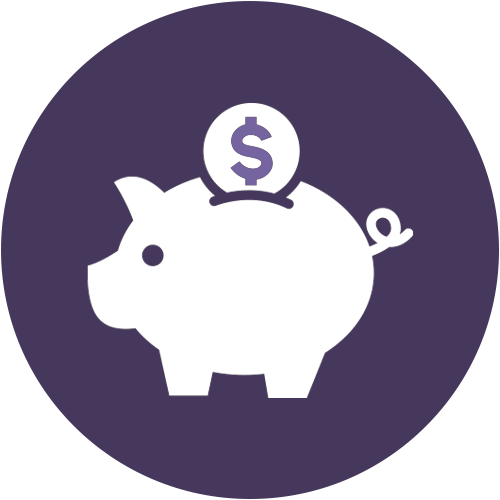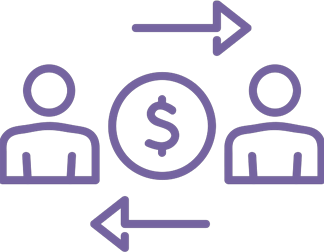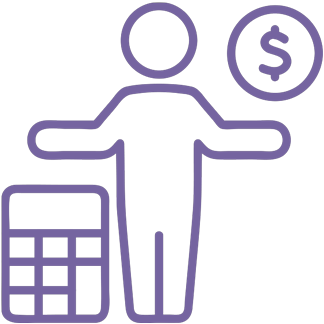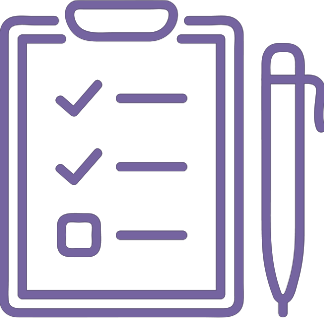Health Accounts
Save Money on Healthcare
Expenses for Today and Tomorrow
Health accounts offer financial benefits for managing healthcare expenses through tax advantages and strategic savings. They are essential tools for anyone looking to efficiently manage both current and future health-related expenditures.
Maximize Your Healthcare Investments

Health Savings Account (HSA)
Contact LifeCore to schedule a personalized consultation and start optimizing your health investments.
01.
What is an HSA?:
A type of savings account that lets you set aside money on a pre-tax basis to pay for qualified medical expenses. When using untaxed dollars in a Health Savings Account (HSA) to pay for deductibles, copayments, coinsurance, and other health care expenses, you will be able to lower your overall health care costs.
02.
How It Works

Get Tax Savings
HSAs offer triple tax advantages. Your contributions are made pre-tax, reducing your taxable income. The money in your HSA grows tax-free, and withdrawals for qualified medical expenses are also tax-free. This unique structure makes HSAs a powerful tool for managing healthcare expenses efficiently.

Access and Manage Funds Easily
Managing your HSA is straightforward. Most HSAs are administered by a bank or financial institution, which provides online and mobile access to your account. This allows you to monitor your balance, track spending, and reimburse yourself for out-of-pocket healthcare expenses easily. For details on setting up and using your HSA, consult your HR department or HSA provider.

Flexible Plans for Diverse Needs
Unlike other health accounts, the HSA is highly flexible. You decide how much to contribute up to the legal limit, and the unused balance rolls over year after year. There’s no "use it or lose it" policy. Your HSA can also serve as a supplementary retirement account, as funds can be used for general expenses without penalty after age 65 (though such withdrawals are subject to income tax).
03.
Benefits
Tax-Deductible Contributions
Reduce your taxable income with tax-deductible contributions to your HSA, easing your annual tax burden.
Tax-Free Growth
Funds in your HSA grow tax-free and can be withdrawn without taxes for qualifying medical expenses, maximizing your healthcare savings.
Annual Rollover
Unused funds in your HSA roll over year after year, accumulating as a tax-free nest egg for future health needs or retirement.
Ownership and Control
You have complete ownership of the funds in your HSA, which are not tied to your employer or insurance company. It’s important to keep detailed records of expenditures for tax purposes.
04.
Real Results
How Having an HSA Helped Sarah...
Meet Sarah, a 28-year-old marketing professional with a high-deductible health plan, consistently contributes to her HSA. Faced with a sudden $2,500 expense for emergency dental work, Sarah found herself needing financial solutions beyond her basic dental insurance coverage.

How HSA Helped:
- Pre-tax Savings: Sarah’s $3,000 in pre-tax HSA contributions reduced her taxable income, providing substantial tax savings.
- Tax-Free Withdrawals: She used $2,500 from her HSA tax-free to cover the procedure, avoiding any impact on her monthly budget.
- Financial Relief: The HSA funds allowed Sarah to avoid using savings or credit, providing peace of mind and financial security.
Outcome: Sarah’s proactive HSA contributions enabled her to manage an unexpected and expensive dental emergency stress-free, showcasing the HSA’s essential role in her broader health care strategy.
05.
How To Sign Up
Payroll Deductions Setup
If offered by your employer, arrange for monthly payroll deductions and direct deposit through your HR department for hassle-free HSA contributions.
Direct Funding Options
For personal contributions, contact an HSA vendor directly. You’ll receive IRS Form 1099-SA and IRS Form 5498-SA from your HSA provider, which are necessary for reporting contributions on your tax returns.
Choosing HSA-Eligible Insurance Plans
Select a qualified health insurance plan that supports HSAs through your insurance agent or employer. If you’re unsure about your options, contact a LifeCore Aviator for expert assistance.
Vendor Selection Flexibility
While employers often recommend a preferred HSA vendor, you have the freedom to choose your own. If uncertain where to start, request a preferred vendor list to find the best fit for your needs.
Get Expert Guidance from LifeCore
LifeCore provides personalized guidance to help you make the most of your Health Savings Account, ensuring that you maximize your benefits and comply with all regulations.

Health Reimbursement Account (HRA)
Contact LifeCore to schedule a personalized consultation and start optimizing your health investments.
01.
What is an HRA?:
A Health Reimbursement Account (HRA) is an employer-funded plan that reimburses employees for qualified medical expenses and health insurance premiums. These tax-advantaged plans allow employers to set contribution limits and determine covered expenses, offering flexibility and financial relief for employees managing healthcare costs.
02.
How It Works
Get Free Money
HRAs do not require payroll deductions and you do not need to contribute any money. Your organization will fund the entire account. Plus, all reimbursements for eligible health care expenses are tax-free too.
Reimbursement Is Easy
Your employer will have an administrator for their HRA. Most provide a way to log in and manage everything via online or mobile applications. You will need to contact your HR department for details.
Plans Vary By Employer
Your organization sets your annual healthcare reimbursement limit and determines which expenses are eligible. Carefully review your annual enrollment materials to find your specific plan details or contact your HR department for details.
03.
Benefits
Tax Benefits
HRAs offer tax savings for both employers and employees, with employer contributions being tax-deductible and reimbursements received by employees being tax-free.
Flexible Contributions
Employers have complete control over the funding of HRAs, allowing them to decide how much to contribute annually, which can be adjusted based on the company’s budget and benefits strategy.

Wide Coverage Options
HRAs can be designed to cover a broad array of medical expenses, from premiums to prescriptions, providing employees with comprehensive health coverage flexibility.
Encourages Preventative Care
By easing the financial burden of out-of-pocket costs, HRAs encourage employees to seek preventative care and regular medical services, promoting overall better health outcomes.
04.
Real Results
How an HRA Helped Tom...
Meet Tom, a 35-year-old software developer with type 2 diabetes, benefits from his employer's Health Reimbursement Account (HRA), designed to help manage ongoing medical expenses. Tom incurs about $4,000 annually in medical costs from medications, glucose monitors, and specialist visits.

How HRA Helped:
- Employer Contributions: Tom receives $3,000 annually from his employer's HRA, which covers a significant portion of his medical expenses, reimbursed tax-free.
- Easy Reimbursements: Tom submits receipts for his medical expenses to his employer's HRA administrator and receives timely reimbursements, minimizing his out-of-pocket costs.
- Consistent Care: The financial support from the HRA ensures Tom can regularly manage his diabetes without financial stress affecting his care routine.
Outcome: The HRA effectively reduces Tom’s financial strain, allowing him to maintain consistent treatment and medication adherence, which supports optimal health management and stable financial planning.
05.
How To Sign Up
Check with HR: Confirm your eligibility for an HRA with your employer's HR department, which can provide details on available plans and enrollment criteria.
Register during Open Enrollment: Enroll in the HRA during your employer's open enrollment period or upon qualifying for benefits due to a life event. Familiarize yourself with the specifics of your employer's HRA offerings.
Easy Reimbursement: Submit receipts for medical expenses not covered by insurance to receive reimbursements. Most plans require submissions through specific platforms or forms provided by the employer or a third-party administrator.
Stay Informed: Regularly review your plan's coverage details to ensure you're maximizing the benefits. Keep track of expenditures and plan adjustments annually to align with your healthcare needs.
We Can Help!
Not sure which health account to choose?
Selecting the right health account is crucial for optimizing your healthcare spending and ensuring financial well-being. Consider your personal healthcare needs, your current financial situation, and the specifics of your employer's benefit offerings when deciding which account best suits your lifestyle and goals. Remember, each type of health account offers unique advantages tailored for different health funding strategies.
We Can Help!
Let LifeCore Guide You!
Our team of experts is here to help you navigate your options and make informed decisions that align with your healthcare needs and financial goals. With personalized advice and strategic insights, we ensure you maximize your benefits and minimize out-of-pocket costs.


